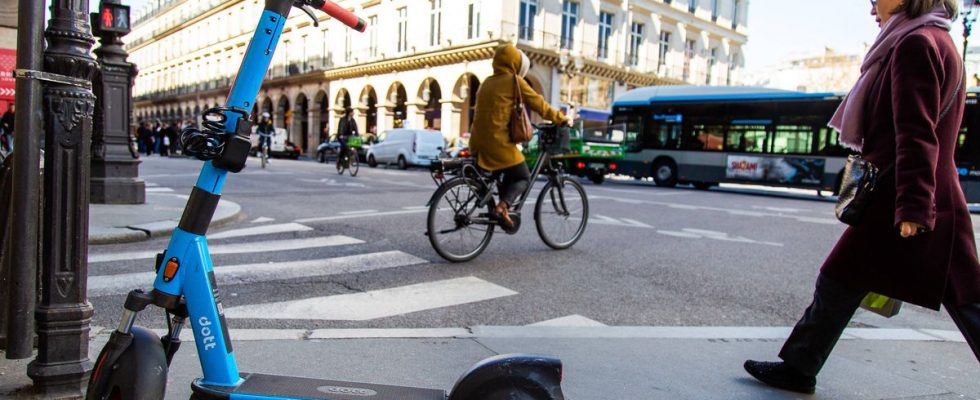Democracy has a cost. The citizen vote on self-service scooters organized in Paris, and validating the future eviction of the 15,000 machines of this type present in the capital, cost 390,692 euros to the Parisian community, indicated the Town Hall. Three-quarters of this amount concerns “the mobilization of the 1,270 agents manning the polling stations”, she specified.
On Sunday April 2, 103,084 voters took part in this vote, i.e. 7.46% of Parisians registered on the electoral lists, for a one-sided result with 89.03% of the vote against self-service electric scooters.
15,000 machines in the streets of Paris
They are accused by their detractors of being abandoned anywhere in the public space, of grazing pedestrians on the sidewalks at full speed, or of having a bad carbon footprint.
Mayor Anne Hidalgo, who was campaigning for their eviction but had undertaken to respect the result of the vote, confirmed the withdrawal on September 1 of the three operators, who each deploy 5,000 vehicles in the capital.
The opposition, like the mayor of the 6th arrondissement Jean-Pierre Lecoq, accuses the executive of having “validated by a vote a decision that he has already taken but that he does not want to assume alone”.
0.28 euro per registered voter
The bill for the vote “represents a cost of 0.28 euros per registered voter”, says the town hall. This is less than during the last municipal elections in 2020 (3.4 million or 2.52 euros per registered voter), or for the two elections in 2022, the presidential (3 million or 2.23 euros) and the legislative elections (2 million i.e. 1.91 euros), again according to the figures communicated by the town hall.
For this unprecedented consultation, the polling stations had been gathered in 21 sites in the capital, the town halls for the most part.
The three operators had unsuccessfully demanded electronic voting, which could stimulate their young clientele, and more polling stations in order to obtain “a broader and more representative mobilization”. Anne Hidalgo hailed a “beautiful day for participatory democracy” and announced a new vote in the spring of 2024, which could bring together “several questions” to be defined.

